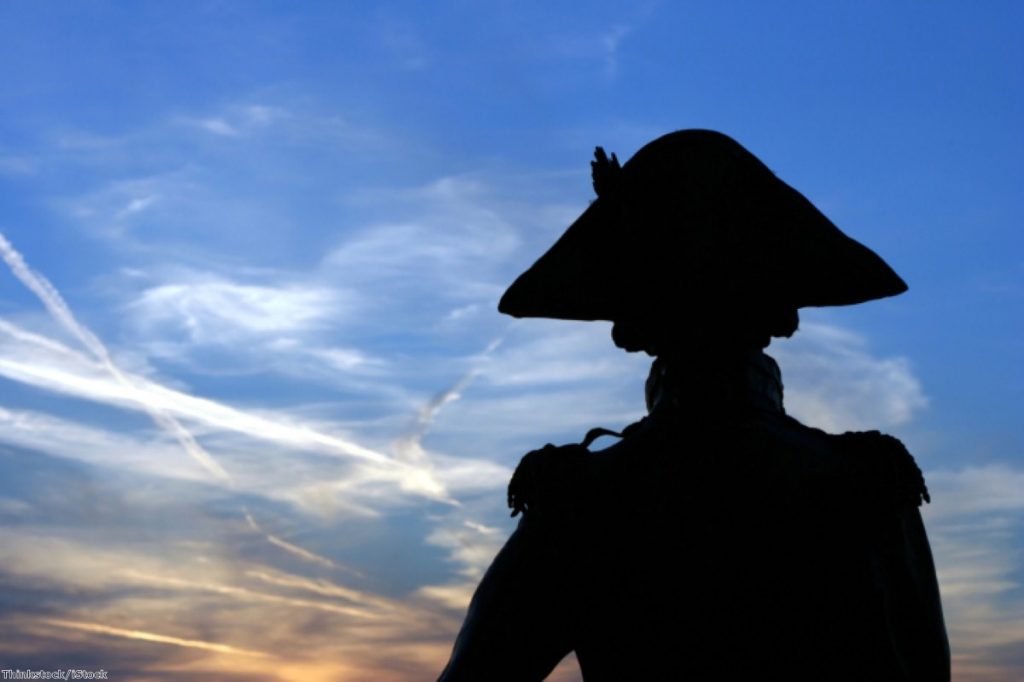The law which criminalises turning a blind eye to crime
In 1801, during the Battle of Copenhagen, Admiral Sir Hyde Parker ordered Admiral Horatio Nelson to beat a hasty retreat. Nelson, who only had one eye because of an earlier incident of martial stupidity, theatrically brought his telescope to his eyepatch and denied being able to see Parker's signal. Hence the phrase 'turning a blind eye' – which the government has today announced it intends to criminalise.
The provisions which will accomplish this within the serious crime bill look more than a little questionable. Their goal is to crack down on the white collar professionals hiding behind a "veneer of respectability" as they knowingly assist organised criminals. Accountants helping with money laundering, or landlords renting out warehouses to mobsters – that sort of thing.
Officials from the Home Office insist this measure isn't going to target those who unwittingly assist organised crime and are thereby guilty of the new offence of 'participation'. The problem is the legislation may struggle to achieve this separation without becoming next to toothless.
How do you prove they were turning a blind eye? Guilty parties need to know that criminal activities were taking place, officials explain. They won't have knowledge of any specific lawbreaking – that is already covered by the umbrella offence of conspiracy. So for those falling short of that bar, all that's required is that they are aware they are dealing with notorious figures.


The examples given by the Home Office confirm a professional could be convicted for helping organised criminals without necessarily knowing what specific criminal acts are taking place.
Take someone who hires a van for a group moving drugs – who's protected from a conspiracy charge because they didn't ask what the van is for. If they knew the group were involved in organised crime then they can face charges, even if they don't know that a specific crime is being committed. But how can the police prove that an individual was just looking the other way? Do they need footage from a down-the-pub 'ask no questions, arf arf' conversation?' Do they need to wiretap a phone conversation in which the mobster helpfully explains: "I am a mobster?"
Under the serious crime bill an accountant would face prosecution for assisting in money laundering, even if they didn't know whether those they were helping were engaged in drugs, or child trafficking, or bank robbery. They have the responsibility to ensure that "everything is above board", in the words of one Home Office spokesperson.
This onus to ensure the innocence not just of yourself but those around you is deeply problematic. A failure to do so risks prosecution. In some cases participation will be inadvertent, in some cases deliberate. Distinguishing between the two – and proving which is which in court – is going to be a tough ask for the police.
Come to think of it, perhaps this article itself would place me in a vulnerable position. Am I not lobbying on behalf of the mob, by trying to protect the suits who make their lives easier? Does that not make me an indirect participant in their misdeeds?
Of course it doesn't. The question for MPs and peers is whether this legislation is going to make that clear. "This will have to be debated in parliament, so the exact intricacies of it will have to be ironed out," the Home Office explains.
The apparent choice, between preserving the usual burden of proof or accepting the number of convictions under the new offence is going to be paltry, is being resisted by the government. Right now it forecasts there will be up to 200 convictions a year as a result of this new law. For an offence about turning a blind eye, that seems remarkably shortsighted.









